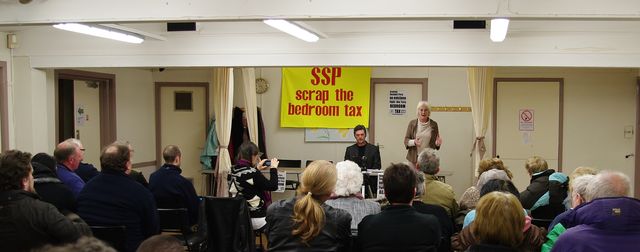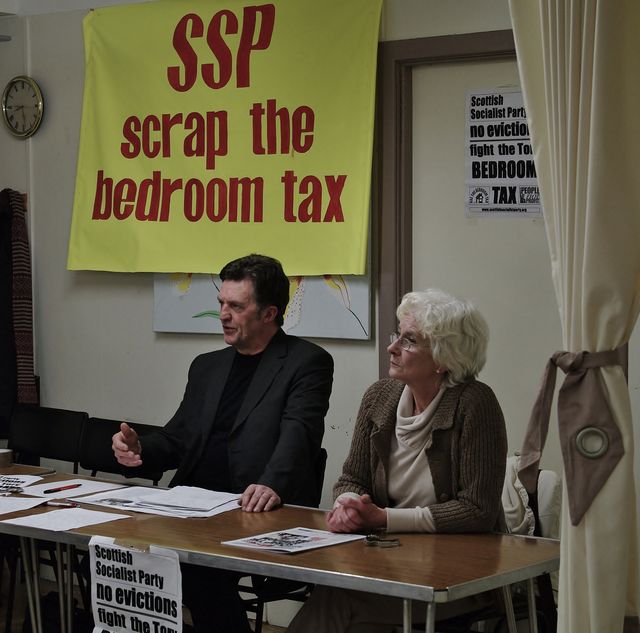Bedroom Tax campaign meeting in Irvine
John Lanigan | 20.03.2013 21:24 | Public sector cuts | Repression | Social Struggles
The Scottish Socialist Party held another successful meeting last night at the Fullarton Community Centre in Irvine, where the focus was on the “bedroom tax”. The welfare reform issue that has been gathering momentum across the UK attracted considerable local interest from activists and infuriated members of the public alike.
Richie Venton, long term Scottish Socialist Party activist and Trade Union Organiser was the speaker on the night. The meeting was also chaired by Denise Morton, a local woman, and branch secretary of the SSP's Irvine and District branch. Denise tirelessly campaigned against nuclear weapons throughout the 1980's when she was a CND activist before becoming involved in the voluntary sector as a pre- and after-school childcare worker. She is a well known and respected member of the community.
Like similar recent meetings held by the SSP in various locations in Glasgow, there was a fair bit of question and answer time, which no doubt went a long way to allaying the myths that have been springing up around the community. Indeed, en route to the meeting place, someone was heard to say (incorrectly) that if you have a spare bedroom that is less than a certain size it would be exempt from the under occupancy rules. Mr Venton was able to deliver an in depth analysis of the so called bedroom tax and clarify the situation on how it would affect people. He also spoke of the commitment of the SSP to prevent any evictions taking place, where the eviction was as a result of the tenant's inability to pay, directly caused by the bedroom tax. Mr Venton was warmly received at the meeting and was applauded frequently throughout.
There is certainly no doubt, that this issue has captured the attention of a large section of society, and that resistance to the current welfare reform continues to gather speed.
There is also frequent reference to the “bedroom tax”as the modern Poll Tax, and while there are certain similarities, when it comes to reaction, it still remains to be seen as to what scale the current welfare reforms will move people to organise and campaign for an alternative. For the moment campaign action is increasing. Will it be strong enough to reverse the disastrous measures being imposed on us through welfare reform? Time will tell.
John Lanigan

